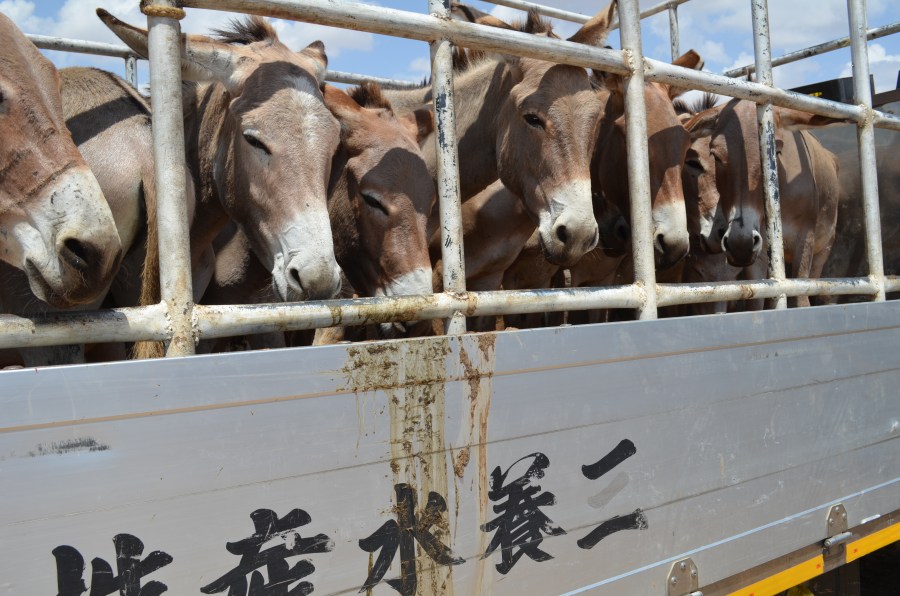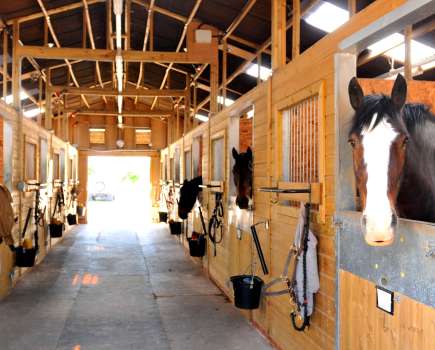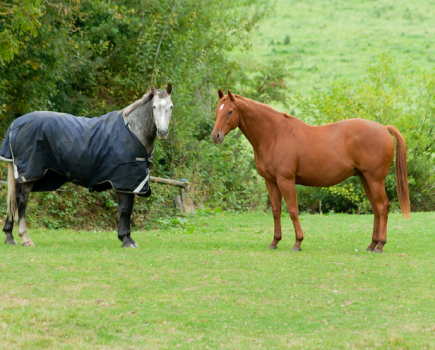A new report from The Donkey Sanctuary has revealed the donkey skin trade is contributing “significant and previously unrecognised” risks to international biosecurity.
Over 4.8 million donkeys are traded and slaughtered for their skins each year. The global trade results in suffering for donkeys and donkey-dependent communities on a devastating scale, according to the charity.
The report, ‘Biosecurity Risks and Implications for Human & Animal Health on a Global Scale’, contains the findings of donkey skin testing conducted by The Donkey Sanctuary and the International Livestock Research Institute in Kenya (ILRI). This testing identified multiple specimens contaminated with Staphylococcus aureus (S.aureus) and African horse sickness (AHS). In the case of S.aureus contaminated skins, 44 of 108 tested were found to be carrying the drug-resistant MRSA variant, and three of the positive samples were carrying the PVL-toxin – known to cause invasive necrotising diseases in humans.
The demand for donkey skins is driven by the production of ejiao, a traditional Chinese remedy believed by some to have medicinal properties.
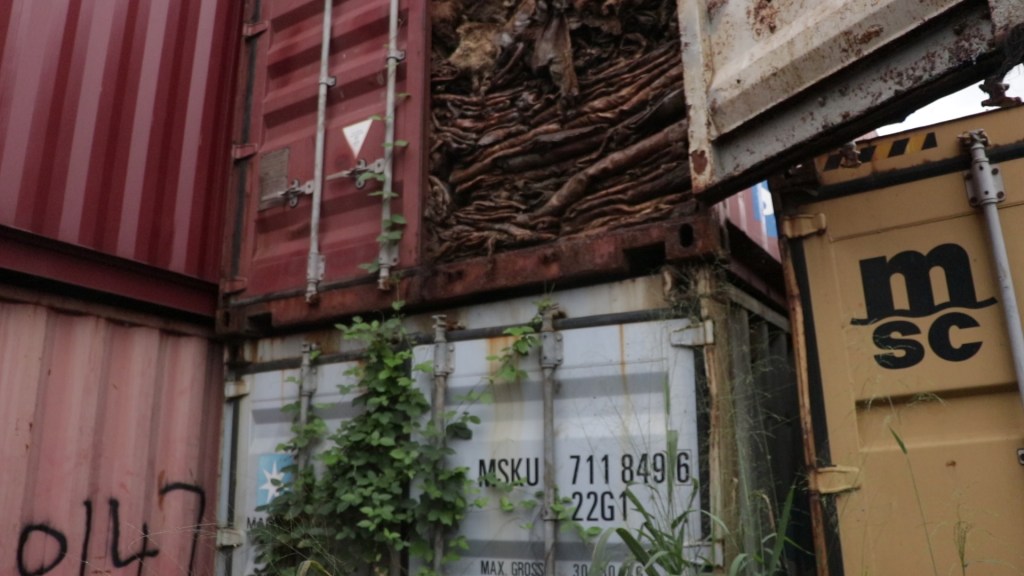
Consignments of illegally trafficked donkey skins seized by Nigerian Customs, Lagos. Credit The Donkey Sanctuary
“The huge numbers of donkeys involved, the indiscriminate and often unhygienic slaughter, including of those that are sick, the disparate way skins are shipped and transported, and the global nature of the trade, all add up to the high risk posed by skins intended for ejiao production that are contaminated with disease-causing agents,” said a spokesman for The Donkey Sanctuary.
“In addition to the immediate health risk to the people and equines exposed to these skins, the biosecurity implications for the destination countries are considerable. Diseases that are endemic in source countries may not be present at all in transit or destination countries, leading to potential outbreaks of diseases in local, naïve equine populations.
“Worryingly, the donkey skin trade currently operates without adequate veterinary and biosecurity protocols. The unregulated and clandestine nature of much of the trade also means that shipments are often impossible to track, and contaminated skins therefore unable to be traced.”
However, even skins processed in licenced slaughterhouses constitute a biosecurity risk. All of the contaminated skin samples identified by The Donkey Sanctuary originated in a licensed slaughterhouse in Kenya. In the same month as the samples were collected, consignments of skins were collected from this location and shipped to a destination in China.
“The global trade in donkey skins is cruel and inhumane, unregulated and unnecessary, which results in suffering for donkeys and donkey-dependent communities on a devastating scale,” said Marianne Steele, Chief Executive of The Donkey Sanctuary. “While many may choose to turn away from the direct impacts on animals and people, I would implore consumers, governments and the wider public to take notice of the risks to animal and human health.
“The global trade in donkey skins should be halted immediately. We now have evidence it is neither humane, sustainable nor safe and allowing it to continue, given the risks we have revealed, is unanswerable.
“If nothing else, the recent lessons of Covid-19, and the current outbreak of avian flu, should make us sit up and take notice of the emerging threats that zoonotic diseases pose.”
The findings of the report will be presented at the African Union InterAfrican Bureau for Animal Resources Pan-African Donkey Conference in Dar es Salaam Tanzania, taking place next month (1-2 December).
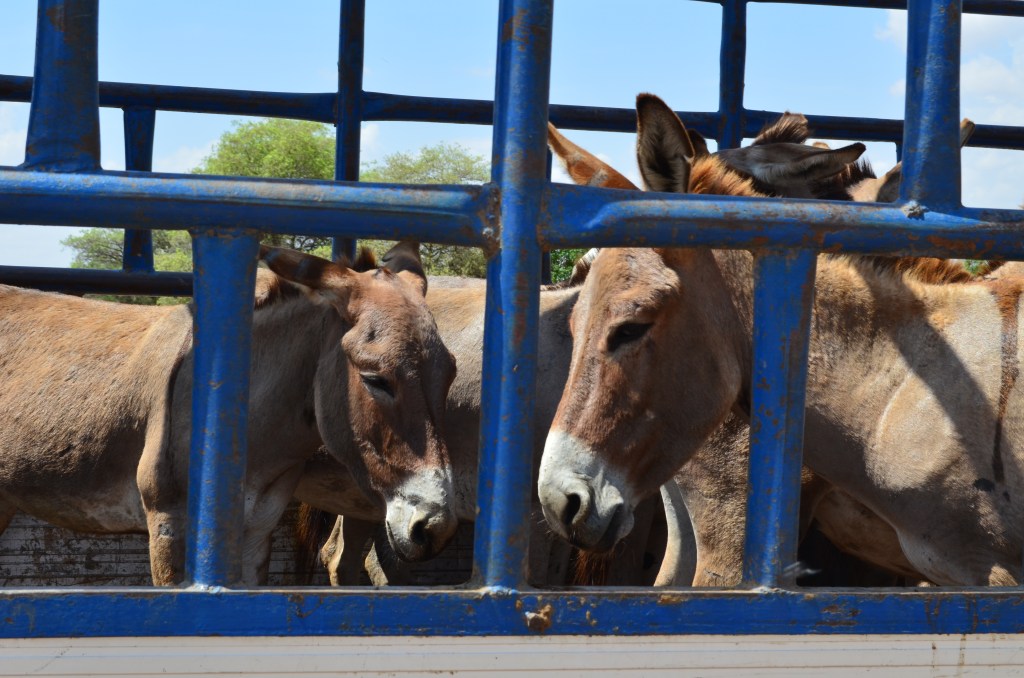
Donkeys are transported long distances in trucks to slaughter. Credit The Donkey Sanctuary
Disease risks
The diseases identified in the samples taken by The Donkey Sanctuary represent a danger to both human and equine health, even when shipped across great distances, the charity said.
S. aureus has the ability to survive long periods of transit on poorly preserved skins, meaning that it can infect humans and animals at the point of slaughter as well as during transit and on delivery in the destination country. AHS can be carried by vector insects (Cullicoides midge), who may have the potential to survive long journeys in shipping containers and infect new equine hosts on arrival.
The Donkey Sanctuary is calling on the governments of China, Hong Kong, Vietnam and Thailand to immediately stop the import of donkey skins, and on the national governments of exporting countries to take immediate steps to stop the trade in donkey skins.
“The findings throughout the report are shocking, although not altogether unsurprising – the disease risks for animals and humans are obvious, with poor hygiene at all stages of the trade,” said Dr Faith Burden, Executive Director of Equine Operations at The Donkey Sanctuary. “The lack of traceability and basic biosecurity should alarm anyone involved in the trade and puts people and animals in general at significant risk.
“The skins tested were from one slaughterhouse sourced on one day – I am sure that skins from other sources and in other countries and continents, if tested, could indicate the presence of other important pathogens such as glanders, equine influenza and African swine fever.”
To find out more, read the full report here
Lead image: Donkeys being transported prior to slaughter, Tanzania. Credit The Donkey Sanctuary

